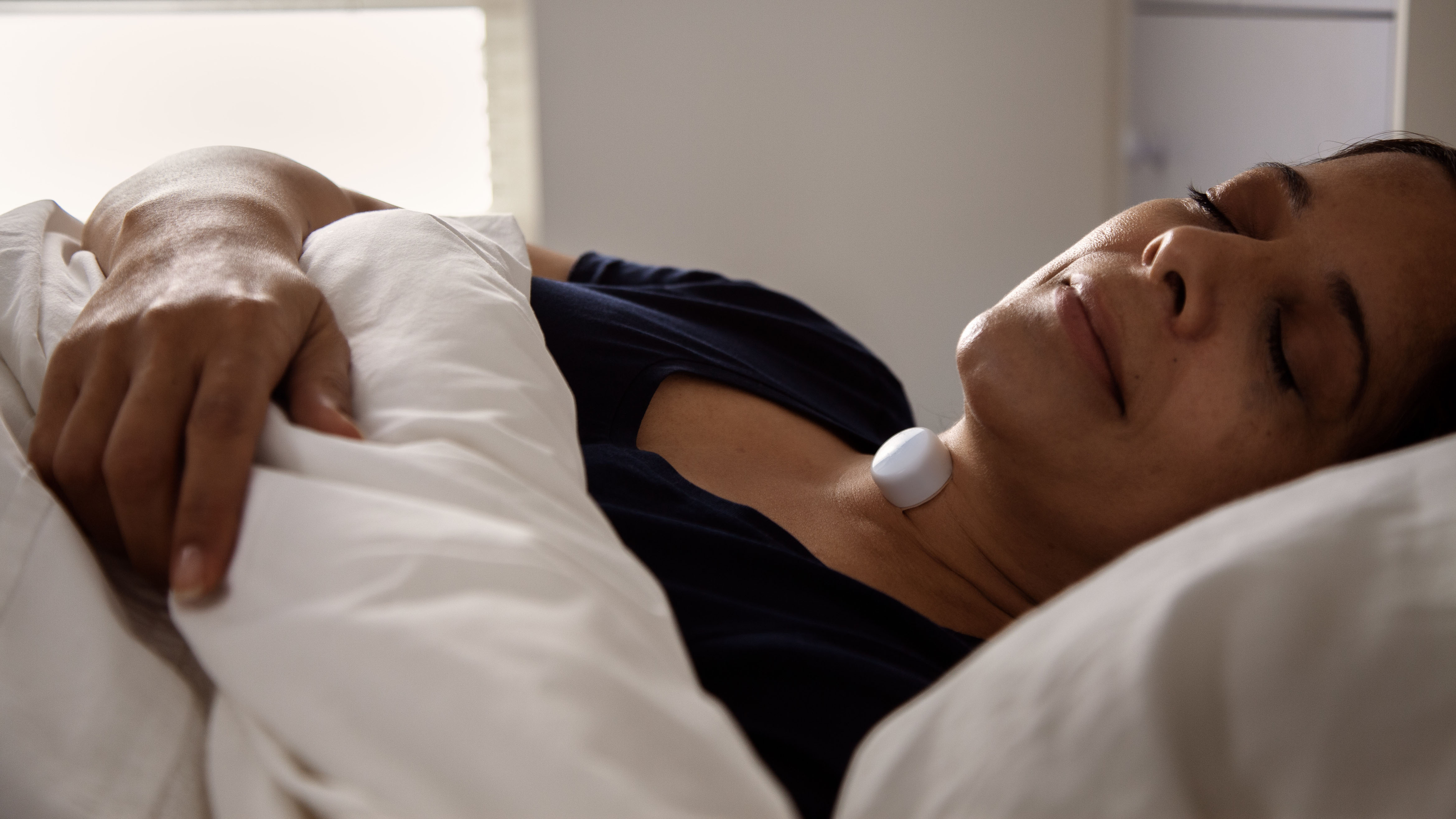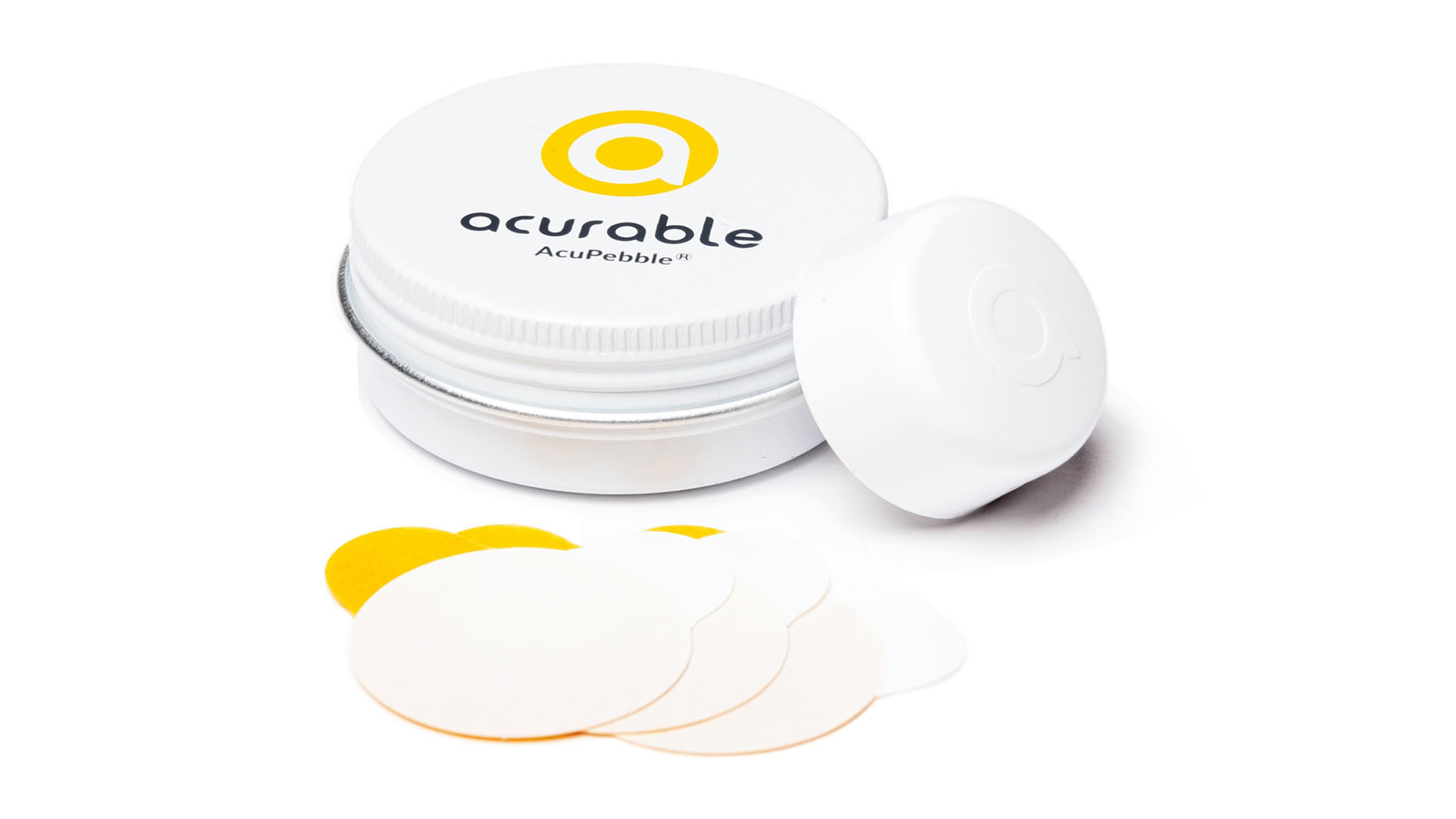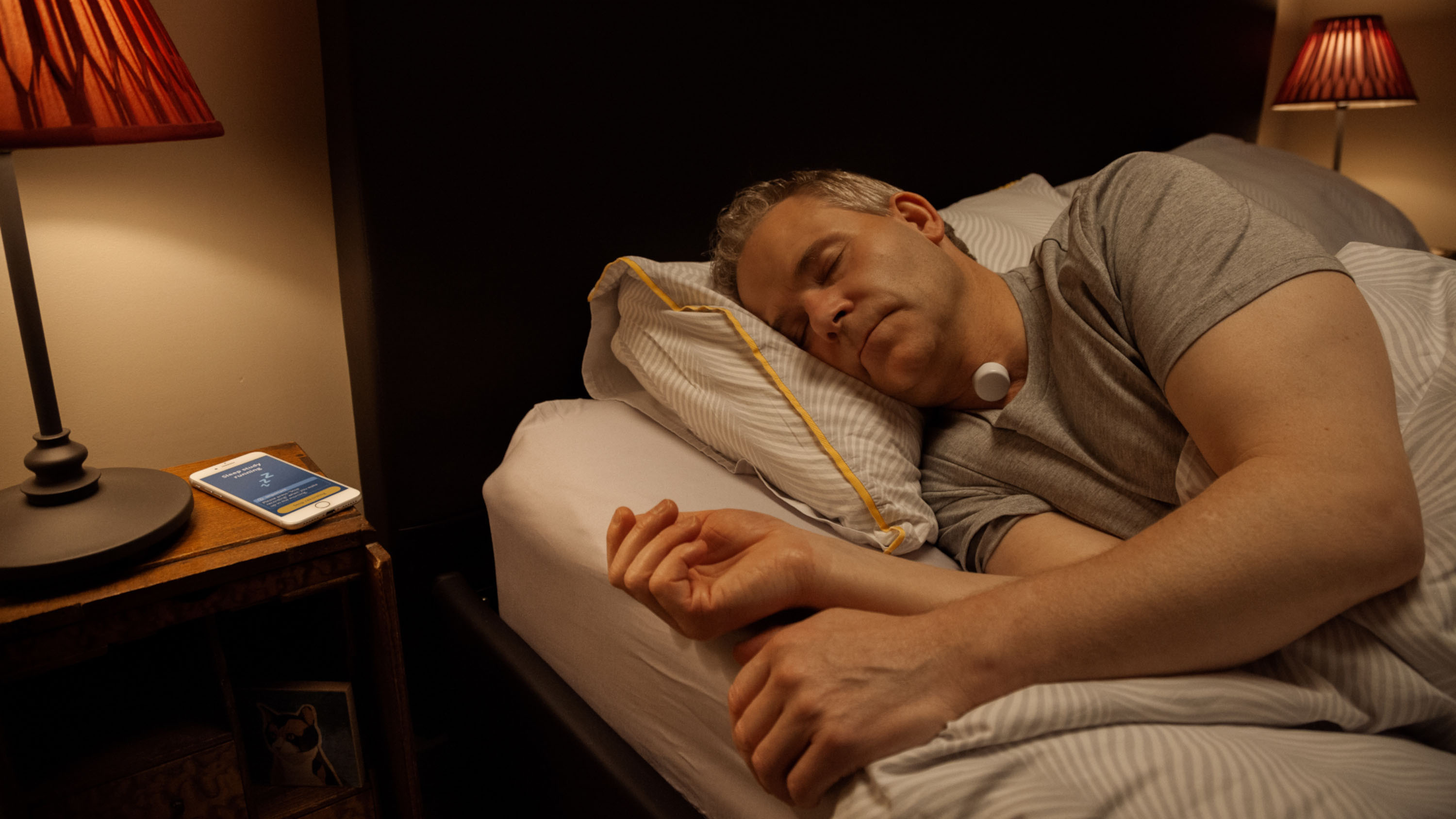Game-changing new wearable detects obstructive sleep apnea symptoms at home
The AcuPebble device can quickly spot sleep apnea symptoms and speed up diagnosis and treatment

A new sleep apnea detection device, currently being used by the UK’s University of Warwick, could drastically speed up diagnosis of Obstructive Sleep Apnea, helping people to receive vital treatment much faster.
The AcuPebble is a non-invasive pebble-sized device that sits on the patient’s throat, where it records sleep data (captured during sleep) directly to the user's smartphone. This data is then sent to the patient’s doctor for analysis.
Developed by Professor Esther Rodriguez-Villegas, Director of Wearable Technologies at Imperial College, London, and founder of medtech company Acurable, the AcuPebble could dramatically slash sleep apnea diagnosis waiting times and revolutionise the diagnosis process entirely.
Backing from the NHS means that the AcuPebble is already widely available in the UK, while FDA clearance in May of last year means that this pioneering sleep apnea detection wearable will have a bigger presence in the US, too.
- Read more: Sleep apnea experts weigh in on the Apple Watch's latest health feature — here's the verdict
How the AcuPebble detects obstructive sleep apnea
Currently, getting a sleep apnea diagnosis requires a lengthy process that, depending on your location, often requires a doctor referral and a complex overnight sleep assessment. It is estimated that as many as 85% of Obstructive Sleep Apnea sufferers worldwide have not yet received a diagnosis.

In contrast, the non-invasive AcuPebble is designed to detect Obstructive Sleep Apnea in your own home without you having to attend a clinic. The adhesive-backed AcuPebble is placed at the base of the neck, where it records respiratory sounds generated by you during sleep.
It also monitors your heart rate, breathing rate and oxygen levels. This data is then uploaded to a secure platform, where healthcare professionals can access it within minutes to evaluate your symptoms. All of this could drastically speed up diagnosis and treatment of sleep apnea.
Get instant access to breaking news, the hottest reviews, great deals and helpful tips.
The AcuPebble sleep apnea detection wearable is the first medical device of its kind to accurately detect respiratory biomarkers for Obstructive Sleep Apnea in patients. This alone makes it a quick and cost-effective alternative to current testing.
The AcuPebble device is being used to streamline the sleep diagnosis pathway in a trial at the University of Warwick which will run for the next two years, while an alternative version of the AcuPebble gained FDA clearance in the US early last year.
This is just one of several exciting developments in sleep apnea diagnosis, including sleep apnea detecting pajamas and research into identifying sleep apnea while awake.

What is sleep apnea and what are the symptoms?
According to the CDC, sleep apnea is a sleep disorder that causes you to briefly stop breathing while sleeping and affects approximately 25 million adults in the US and 1.5 million adults in the UK. There are two different types of sleep apnea: Central Sleep Apnea and, more commonly, Obstructive Sleep Apnea.
Harvard Health explains that Obstructive Sleep Apnea occurs when the throat muscles relax during sleep, causing airways to become slightly or completely blocked. Once oxygen levels drop low enough, the brain sends signals to the body to wake up, which is when the OAS sufferer begins to breathe again. The AcuPebble will be able to detect Obstructive Sleep Apnea in sufferers.
Symptoms of OAS include loud snoring, gasping, periods where you appear to stop breathing (this is usually reported by another person), frequent wakings during the night and daytime drowsiness. Without treatment, OAS can cause high blood pressure and increase your risk of stroke and heart attack.

Nicola is the Sleep Editor at Tom’s Guide, where she helps steer the mattress and sleep content published on Tom’s Guide, including our Best Mattress for Back Pain buying guide. With a career in journalism spanning the best part of two decades, Nicola brings experience to the team and the knowledge of what makes a great article, whether that’s a how-to mattress cleaning feature, a deep dive into melatonin gummies, or an in-depth mattress review. As a sleep editor, few better understand how important a decent mattress is to the overall quality of our sleep, and precisely how our sleep impacts our physical and mental health. As well as tackling the vast topic of sleep, Nicola joins the raft of expert mattress specialists at Tom’s Guide, who test and compare a wide range of mattresses in order to guide readers towards the very best options on the market.
 Club Benefits
Club Benefits





